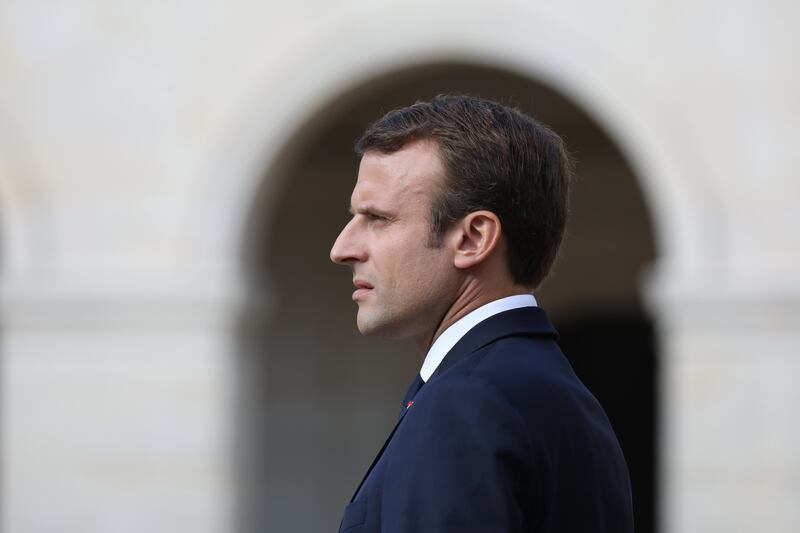France’s president Emmanuel Macron has said that Brexit negotiations will not be able to progress unless three key issues have been resolved: the border with Ireland, the rights of European Union citizens and the so-called “divorce bill”.
Mr Macron made the comments hours after British Prime Minister Theresa May proposed a two-year transitional period after the UK leaves the EU in 2019 in an attempt to break the Brexit deadlock during a speech in Florence on Friday.
Mrs May promised that Britain would honour its existing financial commitments during the transition, while also offering more legal protections for EU citizens residing in the UK.
_______________
Read more:
[ Britain’s May urges two-year Brexit transition deal ]
[ Boris put to the sword by the brothers of the pen ]
[ UK to lose out on 10,000 finance jobs post-Brexit ]
_______________
Although he acknowledged that the speech showed “a will”, Mr Macron said further clarity was needed when it came to the three main points of Britain leaving the bloc.
"The signals sent by the British Prime Minister show a will", he told the French press.
"Before we move forward, we want to clarify matters concerning the settlement of European citizens, the financial terms of exit and the question of Ireland.
"If these three points are not clarified, we will not be able to advance on the rest."
Speaking from the United Nations in New York, Ireland’s foreign minister Simon Coveney said Mrs May’s speech was a “positive contribution” but said there was still “a lot of work” to be done.
“The speech is a positive contribution towards making progress on phase one issues – citizens’ rights, the financial settlement and Irish issues,” Mr Coveney said.
“This is needed to enable the UK and the EU to move forward to the important next phase, but it is clear that there are still many outstanding issues and a lot of work is still required before European leaders can make a decision that parallel discussions on the EU’s future relationship with the UK can begin.
“The key thing now is that today’s comments by Prime Minister May are translated into deliverables across the negotiating table in Brussels.”
Michel Barnier, the EU's chief Brexit negotiator, gave a cautious welcome to Mrs May's speech, describing it as "constructive" and saying it shows "a willingness to move forward, as time is of the essence".






